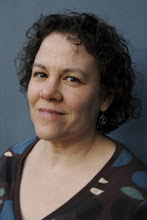Anyone who has sold a half million books, been on bestseller lists, and been on the Quick Picks for Reluctant Readers list, the Top Ten Teen Pick list, and YALSA's Popular Paperback list knows how to write great books.
Deadly Little Secret (A Touch Novel)
Description
Until three months ago, everything about sixteen-year-old Camelia's life had been fairly ordinary: decent grades; an okay relationship with her parents; and a pretty cool part-time job at an art studio downtown. But when Ben, the mysterious new guy, starts junior year at her high school, Camelia's life becomes far from ordinary.
Rumored to be somehow responsible for his ex-girlfriend's accidental death, Ben is immediately ostracized by everyone on campus. Except for Camelia. She's reluctant to believe he's trouble, even when her friends try to convince her otherwise. Instead she's inexplicably drawn to Ben...and to his touch. But soon, Camelia is receiving eerie phone calls and strange packages with threatening notes. Ben insists she is in danger, and that he can help – but can he be trusted? She knows he's hiding something...but he's not the only one with a secret.
I asked, Laurie answered
A. What's the scariest thing that's ever happened to you? Bonus question: have you used it, in any way, in a book?
L. When I was doing the research for Project 17, I went to the abandoned mental institution on which the book is based. Growing up, the former mental hospital was rumored to be haunted (there are actually unmarked graves on the premises). Once I really started delving into the research, visiting the place took on a whole new meaning (knowledge really IS power). I was so horrified that I couldn’t sleep at night. So, yes, I have used this fear to write a book.
A. Mystery writers often give their characters an unreasoning fear - and then make them face it. Do you have any phobias, like fear of spiders or enclosed spaces?
L. I’m the biggest wuss ever, even though I write this scary stuff, too. You name it – bugs, critters, haunted houses, dark places, basements, attics, creaking noises at night, horror flicks, abandoned places, the list goes on and on. I use all of this in my writing.
A. Do you have a favorite mystery book, author, or movie?
L. I love Stephen King and Robert Cormier. I also love The Lovely Bones by Alice Sebold and Our Secret History by Donna Tartt. As for movies, I love the Scream trilogy, though I have to watch most of it with a pillow over my eyes. I also like I Know What You Did Last Summer (but again with the pillow). I’m not into the mega-horror stuff that’s out now. If I watched any of that, I’m not even joking when I say I wouldn’t be sleeping for days.
A. At its heart, every story is a mystery. It asks why someone acts the way they did - or maybe what will happen next. What question does your book ask?
L. What happens when you fall in love with someone who could possibly kill another, including you?
A. Is there a mystery in life that you are still trying to figure out?
L. I think there are so many mysteries in one’s life. Unraveling those mysteries and getting to the answers – and finding new mysteries along the way – is what we’re meant to do I believe.
What the critics say
"[L]ively first-person narrative," raves Kirkus [full disclosure: Kirkus never raves], "CW-worthy dialogue, quirky secondary characters, romance and suspense: a winning combination." KLIATT says, "An engaging, eerie tale about the darker side of relationships - when it becomes a matter of life and death to know who your friends are.". And Teens Read Too says, “The book was full of shocking surprises and revelations, earning the book five stars. This is a must-read for fans of romance, suspense, and mystery because it won't disappoint.”
About the author
Laurie Faria Stolarz is the bestselling author of the Blue is for Nightmares series: Blue is for Nightmares, White is for Magic, Silver is for Secrets, Red is for Remembrance, and the forthcoming Black is for Beginnings. She's also written Bleed and Project 17. Do you think that it's a coincidence that Laurie was born and raised in Salem, Massachusetts?
Watch the trailer
